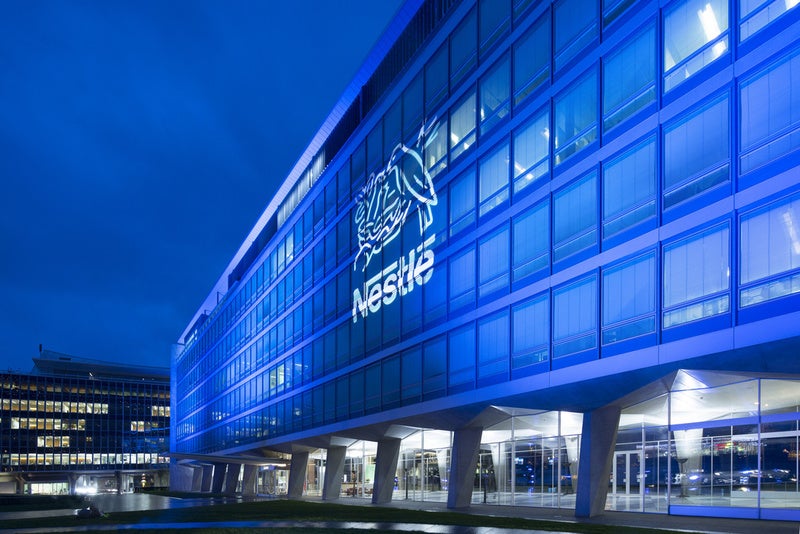
Nestlé has announced a series of sustainability pledges as it aims to meet its April 2018 commitment of making 100% of its packaging recyclable or reusable by 2025.
The company’s primary focus is to avoid plastic waste.

Discover B2B Marketing That Performs
Combine business intelligence and editorial excellence to reach engaged professionals across 36 leading media platforms.
Nestlé CEO Mark Schneider said: “While we are committed to pursuing recycling options where feasible, we know that 100% recyclability is not enough to successfully tackle the plastics waste crisis.
“We believe in the value of recyclable and compostable paper-based materials and biodegradable polymers, in particular where recycling infrastructure does not exist.”
The company plans to eliminate all non-recyclable or hard-to-recycle plastics for all its products across the globe between 2020 and 2025.
Starting next month, the company will start using alternative materials such as paper and phase out all plastic straws from its products to reduce litter.

US Tariffs are shifting - will you react or anticipate?
Don’t let policy changes catch you off guard. Stay proactive with real-time data and expert analysis.
By GlobalDataIt will roll out paper packaging for Nesquik in the first quarter of this year and for the Yes! snack bar in the second half.
Plastic-free Smarties packaging will be introduced this year and paper-based Milo pouches will be launched in 2020.
As part of its commitment, the recycled PET content in Nestlé Waters’ bottles will be increased to 35% by 2025 at the global level.
Nestlé formed a global partnership with Danimer Scientific to develop a marine biodegradable and recyclable bottle for its water business.
The company’s 4,200 facilities across the globe are committed to eliminating single-use plastic items that cannot be recycled, with plans to replace them with materials that can easily be recycled or reused.
Nestlé said in a statement: “For recyclable materials such as PET and aluminium, we will ensure that the proper means to collect and handle are available where consumed and our commitment to recycling is well-communicated.”





